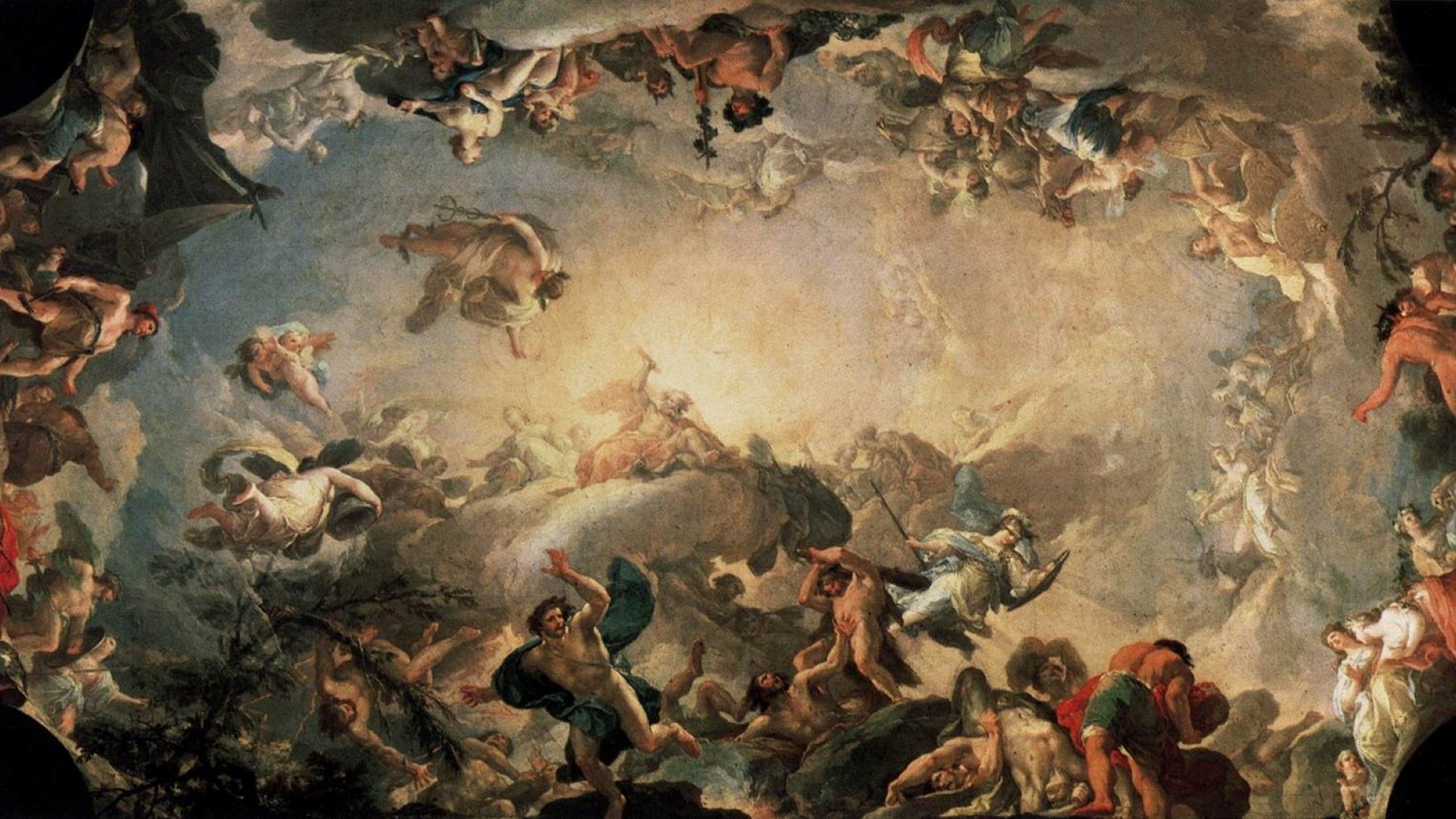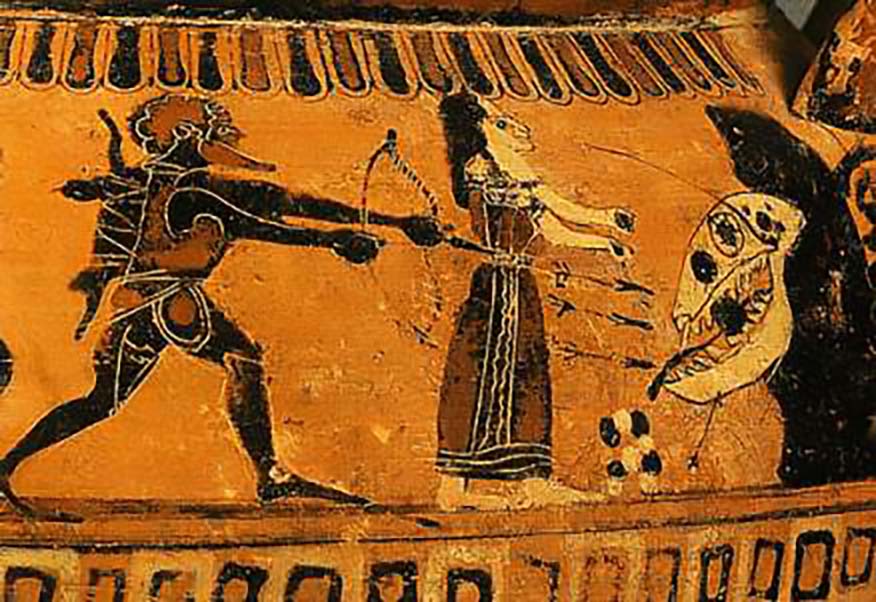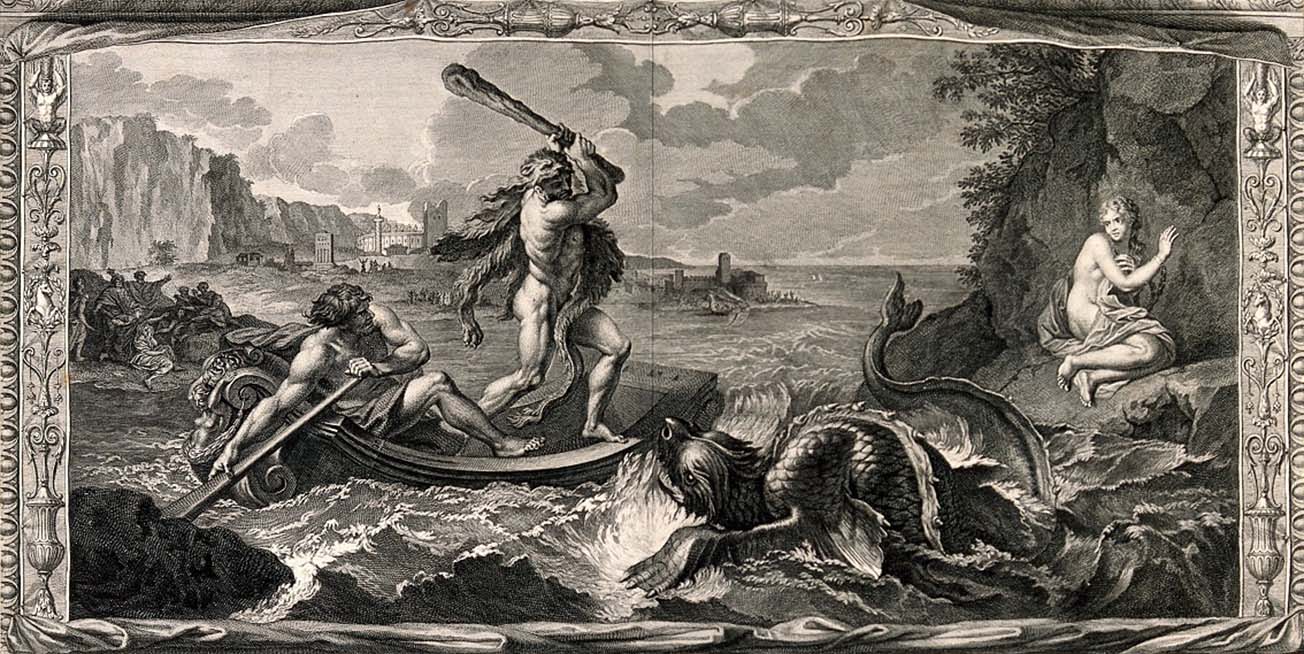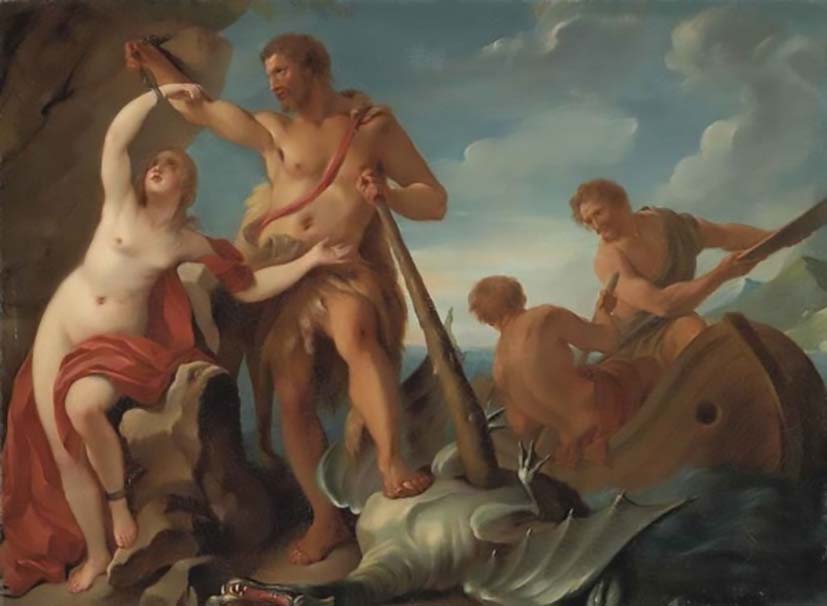
Hesione

In Greek mythology and later art, the name Hesione (Ancient Greek: Ἡσιόνη) refers to various mythological figures, of whom the Trojan princess Hesione is most known.
Hesione of Troy
According to the Bibliotheca, the most prominent Hesione was a Trojan princess, daughter of King Laomedon of Troy, sister of Priam and second wife of King Telamon of Salamis. The first notable myth Hesione is cited in is that of Hercules, who saves her from a sea monster.
However, her role becomes significant many years later when she is described as a potential trigger of the Trojan War.
Apollo and Poseidon were angry at King Laomedon because he refused to pay the wage he promised them for building Troy's walls. Apollo sent a plague and Poseidon a sea monster to destroy Troy.
Oracles promised deliverance if Laomedon would expose his daughter Hesione to be devoured by the sea monster Cetus (in other versions, the lot happened to fall on her) and he exposed her by fastening her naked to the rocks near the sea. Heracles, Telamon and Oicles happened to arrive on their return from the expedition against the Amazons.
Seeing her exposed, Heracles promised to save her on condition that Laomedon would give him the wonderful horses he had received from Zeus as compensation for Zeus' kidnapping of Ganymede. Laomedon agreed, and Heracles slew the monster.
In some accounts, after being swallowed by it, he hacked at its innards for three days before it died. He emerged, having lost all his hair. However, Laomedon refused to give him the promised award.
Later, Heracles did indeed return, leading six ships of men, and accompanied by Telamon, a companion of Heracles on a number of adventures.
Now no mortal could contemplate breaking the walls built by a god, but not all of the walls of Troy had been constructed by Poseidon, for Aeacus had constructed some, and Aeacus just happened to be the father of Telamon.

It was said by some that it was Telamon who first broke through the walls of Troy, an act that angered Heracles who wished to be the first, but Telamon quickly soothed the anger of Heracles, by building a magnificent sacrifice that was to be offered up in the name of Heracles.
Heracles' anger against Telamon dissipated, but the anger aimed towards Laomedon did not, for Heracles put the king of Troy to the sword, and also killed a number of Laomedon's sons at the same time. One son, Podarces, would be spared from death following the intervention of Hesione.
Heracles gave Laomedon's daughter Hesione as a prize to Telamon instead of keeping her for himself.
He allowed her to take with her any captives that she wished; she chose her brother Podarces. Heracles allowed her to ransom him in exchange for her veil. Therefore, Podarces henceforth became known as Priam, from ancient Greek πρίασθαι, meaning "to buy". Heracles then bestowed the government of Troy on Priam.
However, it is also claimed that Priam simply happened to be absent campaigning in Phrygia during Heracles' attack on Troy.
Hesione was taken home by Telamon (who also was the king of Salamis), married him and bore him a son, Teucros, half-brother to Telamon's son from his first marriage to Periboea, Ajax. Alternatively, she became pregnant with Trambelus while still on board the ship and then escaped; it is also possible, though, that the mother of Trambelus was not Hesione, but a certain Theaneira.
Many years later, when Hesione was an old woman, Priam sent Antenor and Anchises to Greece to demand Hesione's return, but they were rejected and driven away. Priam then sent Paris and Aeneas to retrieve her, but Paris got sidetracked and instead brought back Helen, queen of Sparta and wife of Menelaus.
Priam was ultimately willing to accept the abduction of Helen, due to the Greeks' refusal to return Hesione. Hesione never returned to Troy, but her son Teucer did, for he was one of the leaders of the Achaean army during the Trojan War, even entering the Wooden Horse, and taking part in the sacking of Troy, his ancestral home.

Hesione in Greek Mythology
In Greek mythology, the name Hesione refers to various mythological figures:
Hesione, a Trojan princess and daughter of Laomedon.
Hesione, a daughter of Oceanus.
Hesione, one of the names given to the wife of Nauplius, who was the father of Palamedes, Oiax and Nausimedon. The mythographer Apollodorus reports that, according to Cercops Nauplius' wife was Hesione, and that in the Nostoi (Returns), an early epic from the Trojan cycle of poems about the Trojan War, his wife was Philyra, but that according to the "tragic poets" his wife was Clymene.
Hesione, daughter of Celeus, was one of the sacrificial victims of Minotaur.
Hesione, also called Isonoe, one of the Danaids who became the lover of Zeus and bore a son by him, Orchomenos.

Sources
Homer, Iliad
Pseudo-Apollodorus. Bibliotheca, 2.5.9, 2.6.4, 3.12.7
Aeschylus, Prometheus Bound 552–560.
Hard, p. 236; Gantz, p. 604; Apollodorus, 2.1.5, 3.2.2, E.6.8; Dictys Cretensis, 1.1, 5.2.
Servius (Aeneid, 6. 21)
Scholia on Apollonius Rhodius, Argonautica 1.230
"Wikipedia"
Our Mobile Application
Check out Our Mobile Application "Ancient Greece Reloaded"


